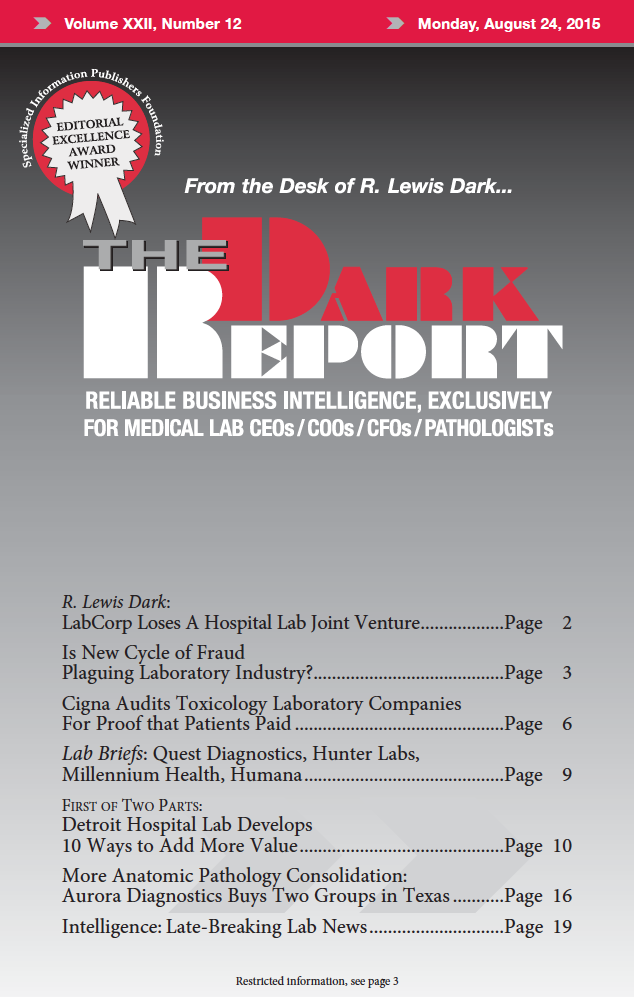CEO SUMMARY: Taken collectively, the growing number of federal investigations of lab companies and health insurer lawsuits against lab companies alleging fraudulent business practices signals a disturbing new trend for the lab industry. In THE DARK REPORT’s typical hard-hitting analysis of an emerging clinical laboratory trend, it is noted that while these allegations are leveled at just a handful of …
Is New Cycle of Laboratory Fraud Plaguing the Industry? Read More »
To access this post, you must purchase The Dark Report.


